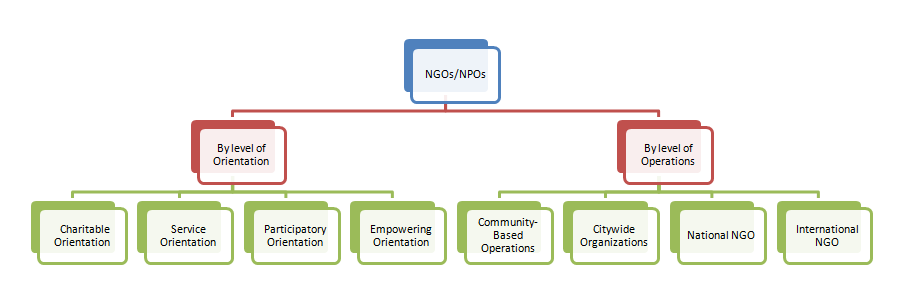Is NGO a profitable business? A Complete Overview

Gonica Verma | Updated: Jun 22, 2019 | Category: NGO
NGO, the acronym of Non-Governmental Organization, are mainly set up for bringing a social change in the country. However, establishing an NGO and maintaining a better consistency is still a challenging task in a country like India.
The reason for the same is several legal complexities and the NGO Registration. However, if you consult a right professional, he/she will guide you in setting up your NGO.
If you’re thinking of starting a Non-Governmental Organization, then it could prove beneficial for you. In the 21st century, the Civil Sector (a non-profit sector that exists beyond the boundaries of the public and private sector) of the country has resulted in tremendous growth.
The top NGOs like “Nanhi Kali”, “Give India Foundation”, and “Smile Foundation”, “Goonj” etc. have achieved a great pace in the country and inviting international collaborations as well for their expansion. Before we proceed further, let’s find out whether they are profitable or not?
Table of Contents
What is NGO or NPO? NGO Registration
An NGO (Non-Governmental Organization) or NPO (Non-Profit Organization) is an organization consisting of a group of people, volunteers, institutions, social activists, community, and civilians working in a social voluntary organization for the welfare of the society.
NGOs are private agencies that work with the cooperative objective to support local, national or international development by raising awareness on social issues, influencing policy changes etc.
If any person wants to work for bringing some social change or for the welfare of the society, then they can work with an NGO without getting registered.
An NGO can be identified in its own registered form and once it gets registered from all the authorities of the Indian government, it can get all the support from the government including the financial support for the organization as they are working for the welfare of the society.
The main motive of these organizations is to work for the welfare of society and bring positive social changes when needed instead of earning profits.
What are the different types of NGOs/NPOs?
NGOs/NPOs are classified under different categories:
By level of orientation

Charitable Orientation
These NGOs are associated with charity i.e. meeting the needs of poor people; providing them food, clothes, medicines, transport etc. they may also influence provisions regarding shelter to them. These NGOs can also undertake relief activities during the time of natural calamity.
Service Orientation
These NGOs designed services like educational services, health services, consultation regarding family planning services etc for the society in which they invite people or group to implement and receive those services.
Participatory Orientation
These NGOs often focus on the community development projects where local people are invited to contribute some resources in the form of cash, machinery, labour etc. These organizations may often be preferred by cooperative groups and they are responsible for the planning to the implementation stage of the project.
Empowering Orientation/Advocacy
These NGOs are focusing on a particular issue or a social cause. They are mainly involved in generating awareness among poor people regarding government policies, new rules and regulations, their rights and all the factors which are affecting their lives. These NGOs act as facilitators and hence, encourage volunteers to work with them.
By level of operations
Community-Based Organizations
CBOs have been arisen by society’s own initiative. They are associated to provide services to the society in the form of educational organizations, women club, health clubs, sports club etc and also aware urban poor people about all the services they can avail on time. They are supported by local NGOs, or sometimes National and international NGOs as well.
Citywide organizations
The organizations such as ethnic organizations, Lion’s Club, Associations of Community Organizations etc operate to help the poor and serve them best for their welfare. While some of them are operating for other purposes as well.
National NGO
It includes those organizations which are operating and helping the society on national level such as RED CROSS SOCIETY;The Young Men’s Christian Association etc. These organizations have several branches in various states and help other NGOs as well.
International NGO
NGOs like SOS Children’s Villages, Catholic Relief Services, CARE International, and Lutheran World Relief may categorize under this type of NGO where they can assist different National and local NGOs.
Several Acts for NGO Registration in India
Firstly, you would have to decide whether in which category you want to register your organization. The registration process will depend on the type of organization whether it is Trust, Society, Non-Profit Company or other form of NGO under Trusts Act, 1882; Society Registration Act, 1860; Company Act, 2013 or any other Act/Law.
NGO registration under the Trusts Act, 1882:
Under this act, NGO must be registered for charitable purposes like providing educational services, relief of poverty, Medical relief etc. For registration under this act the following are the requirements:
- Name of the NGO
- The aim and objective of the organization.
- Minimum 2 members/Trustees.
- Photo Identification proof, Address Proof( Aadhar card, Voter ID card, Driving License)
- 2 photographs of each member.
- Preparation of Trust deed as Memorandum.
NGO registration under Society Registration act, 1860:
Organizations who want to register themselves under this act may work for any charitable purpose or scientific purpose or any other purpose mentioned in Section 20 of the Society Registration Act, 1860. A minimum number of members who can register under this act is 7.
NGO registration under Companies Act, 2013:
Companies who want to establish under this act must encourage and promote art, science, culture, charity and other beneficiary things for the society. It is incorporative with the aim for the welfare of the society in any field.
What are the benefits of running an NGO?
Exempted from paying Income and other Government taxes
If you registered your organization under Societies Act, 1860, then you don’t need to pay income tax as you are working for the society welfare. You are also exempted to pay Entertainment and Service tax once you registered under Trusts Act.
Separate legal entity
It has a separate legal entity in eyes of the government as like other private and public business forms.
Funding from government and other private agencies
Once you registered as NGO, you will get financial support from government and other private agencies as well who want to contribute funds for the welfare of the society. If you registered your company under Trust act, 1882, then you will also get land from the government for your operations.
Good staff for your organization
Employees or volunteers who want to work for your organization may contribute their full efforts towards your organization as they are working for good cause from all heart instead of focusing on their salaries factor.
No minimum capital requirements
There is no limit to start your NGO. Once you start working for the society, the government or other private bodies will contribute funds to the organization.
Ease of transferring ownership or title
Once you registered you organization under Section8 of Companies Act, 2013. Then you can easily transfer your ownership to other without any hindrances.
Long run organization
This is an important advantage of running an NGO. If you are serving the society then, society will also support you to serve them better in future as well which ensures the long run operations of the organization.
National and International collaborations
Once you start running as NGO, then your efforts for the welfare and change for the society will invite National and International NGOs to collaborate with your organizations. In some cases, international companies also invest in NGOs who works to help poor or for the society change.
Conclusion
Hence, it would be wrong if we say that NGO isn’t a profitable business. If we operate for the welfare of poor people or to bring positive change in the society, then we can surely receive huge benefits from the government in the form of tax exemption, funding, land etc. as well from the society by their support in the activities of the organization.
The only thing you need to take care while registering your NGO is motive of starting the organization. You must ensure that your aim should be to work for the welfare of the backward communities and those in-needs.















